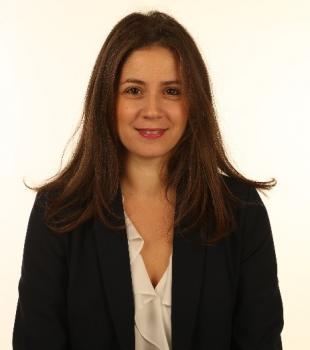Location:
Hudson Beare Building, Classroom 8
Date:
“Damage detection in composite structures using Wave Modulation Spectroscopy with active non-linear piezoelectric sensors and other Wave Propagation analytical approaches”
Abstract
Traditional active structural health monitoring techniques are focused on the detection of damage along the propagation of linear waves generated and monitored by piezoelectric wafer and film transducers. Non-linear ultrasonic NDE techniques provide a new methodology for damage detection and identification. Using a small number of transducers, this technique provides high efficiency on the detection of cracks mostly in metallic components.
Due to material nonlinearity, a wave can distort, creating accompanying harmonics, multiplication of waves of different frequencies and, under resonance conditions, changes in resonance frequencies as a function of the driving amplitude. In undamaged materials these phenomena are very weak, while in damaged materials they are remarkably strong. The sensitivity of nonlinear methods to the detection of damage (cracks, flaws, etc.) is reported to be far greater than that of linear-acousto-ultrasonic methods (measures of wave speed, attenuation and dissipation) and, in fact, these methods appear to be more sensitive than any method currently available.
A novel active nonlinear acousto-ultrasonic piezoelectric sensor concept (ANAUPS) was developed, using solely piezoceramic wafers as actuators and sensors, i.e. two actuators generated the low frequency nonlinear wave and the ultrasonic carrier wave respectively, while the sensor detected the modulated ultrasonic wave signal.
Furthermore, other wave propagation methods were used to detect damage (mainly delamination) in laminated composite strips and plates. To strengthen the experimental results, a semi-analytical solution was developed to describe the generation and propagation of stress waves in composite structures, using the layerwise kinematic theory through the thickness of the structure.
Biography
Antigoni Barouni studied Mechanical & Aeronautical Engineering at the University of Patras (Greece) and obtained her diploma in 2005. In the same University, she joined the Structural Analysis & Active Materials (SAAM) Group and obtained her PhD degree in 2016, with a thesis entitled “Semi-Analytical Wave Propagation Models in Composite Plates of General Laminations for Structural Health Monitoring Applications”. Her research activity is focused on the structural health monitoring of laminated composite structures using wave propagation methods, non-destructive testing and evaluation and composite structures.
She joined the University of Portsmouth as a Teaching Fellow at the School of Engineering having previously worked for 12 years in total as a teaching fellow in the Western Greece University of Applied Sciences (Patras, Greece), the University of Patras (Greece) and the University of Southampton (UK). Currently, she is a Lecturer of Materials and Manufacturing in the School of Mechanical and Design Engineering of University of Portsmouth. She has been involved and taught various subjects including Systems Design, CAD/CAM, Moulds Design, Computer Programming and Finite Element Analysis. She has supervised various undergraduate projects related to CAD/CAM systems and applications.
Currently, Antigoni’s research is focused on damage identification in composite structures – with a focus on sustainable, bio-based composites – when impacted under low velocity impact using imaging techniques. Also, the performance of adhesive joints under various adhesion parameters is under study with applications in wind energy industry.
She is a Fellow of the Higher Education Academy (HEA) and a CEng member of the Institute of Mechanical Engineers (IMechE). Her role at the University of Portsmouth also involves being the University’s Liaison Officer for IMechE.



